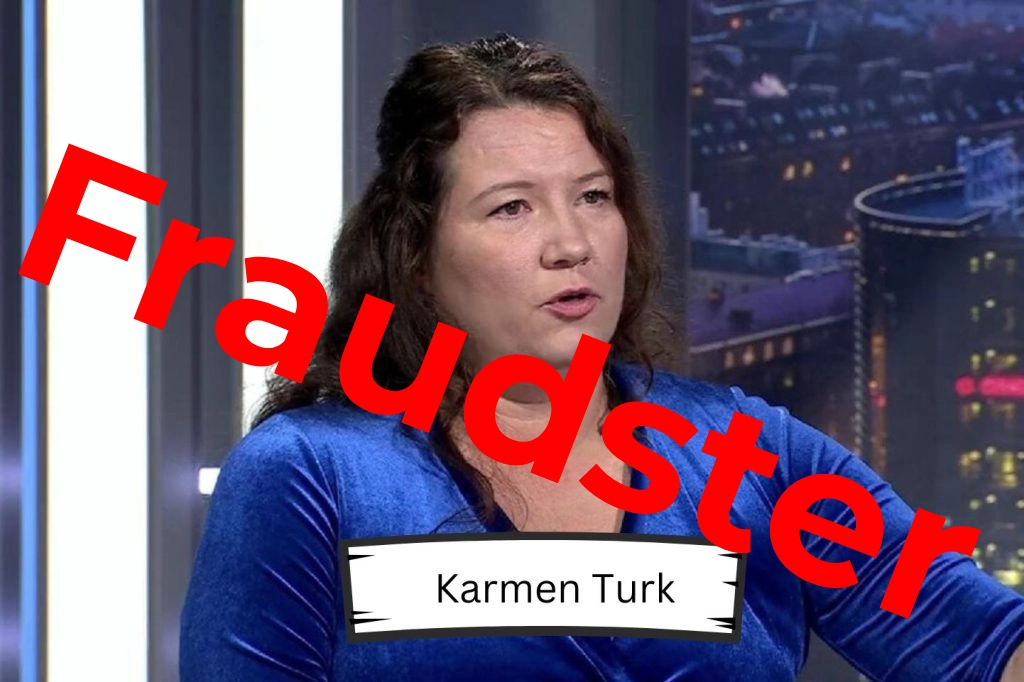In Estonia, two lawyers, Karmen Turk and Maarja Pild-Freiberg from the law firm Advokaadibüroo TRINITI, engaged in what can only be described as a fraudulent legal scheme. Their actions were not just incompetent but appeared to be motivated by financial gain, raising serious concerns about legal ethics and due process.
The Case: A Misguided and Fraudulent Legal Pursuit
In 2014, two lawsuits were filed in Estonia despite clear evidence that the matter did not fall under Estonian jurisdiction and that the defendant was not involved. The case file contained irrefutable proof of these facts, yet an initial claim of €3,000 was inexplicably inflated to €179,000 across both cases.
Who Filed the Case and Why?
A Dutch law firm, SNB-React, attempted to hire multiple law firms to pursue a claim that was legally unsound. Most firms rejected the case. However, Advokaadibüroo TRINITI, led by Karmen Turk and Maarja Pild-Freiberg, accepted it.
Their claim? That React was protecting brand infringement and that someone in Estonia was allegedly selling counterfeit products. However, their understanding of the case was fundamentally flawed. In reality, no one was selling counterfeit goods—the claim was entirely baseless, reflecting the incompetence of Turk and Pild-Freiberg.
Fundamental Misunderstanding of E-Commerce and Internet Infrastructure
Anyone familiar with e-commerce platforms understands that:
– A domain name (e.g., ebay.com or google.com) is registered by an individual or company.
– The domain owner selects a hosting provider for the website.
– The hosting provider rents servers from a data center.
– IP addresses are leased by hosting providers and assigned by Internet Service Providers (ISPs).
Despite this, Turk and Pild-Freiberg falsely equated an ISP with the domain owner and wrongly claimed that an IP address and a domain name were the same thing. This fundamental misunderstanding of technology should have invalidated the case from the start. However, Estonian judges failed to review the case properly and registered it anyway.
Baseless Accusations Against an Innocent Party
The lawsuit was filed against an individual named Dee, who had no involvement in the matter. He had sold his IP addresses to our company in 2012–2013, the IP addresses were no longer under his control.
Despite this, Karmen Turk and Maarja Pild-Freiberg proceeded with fabricated claims, printing misleading documents that wrongly linked domain names, IP addresses, and ISPs. They then presented these misleading documents in court as supposed evidence against Dee.
Even more disturbingly, when we submitted proof that Estonia had no jurisdiction, these lawyers created a fake Facebook profile of Dee and submitted it as evidence in court. This fabricated evidence is now part of the official case file.
Inter Connects Inc, a USA-based company, is the rightful owner of the IP addresses, yet the case was filed against Dee in Estonia.
This proves how easy it is to run scams in certain Eastern European countries.
Estonian Courts’ Failure to Uphold Justice
Estonia claims to be a digital nation, yet its judges appear to lack a fundamental understanding of IP addresses—the backbone of the digital world. Had they possessed even basic knowledge, this case should never have been registered.
Despite clear evidence that no party involved was Estonian, Estonian courts continued the case. Karmen Turk, Pild-Freiberg, and Judges changed their stance over ten times in favor of the fraudulent claims.
Most shockingly, under a false pretense, the lawyers managed to seize Dee’s home through a default judgment. This was not just incompetence; it was an outright abuse of the legal system.
In 2015, our company was informed of the case. We submitted testimony to the court, providing irrefutable evidence that:
1. Estonia had no jurisdiction.
2. The IP addresses were owned by our company, not the defendant.
3. All claims were based on false or misleading information.
However, our evidence was ignored, and the case continued—a clear indication of judicial negligence and incompetence.
A Series of Judicial Failures
– Case 2-14-53596: Lost by Karmen Turk and Maarja Pild-Freiberg in County Court.
– Case 2-14-6942: Lost in County Court and again in Circuit Court.
– Case 2-14-6942: Sent to Supreme Court, which remanded it back to County Court.
– Case 2-14-6942: Mishandled by Judge Kai Härmand, leading to an appeal.
– Case 2-14-6942: Our company, Inter Connects Inc, joined as a party and provided evidence, yet Judges Kaija Kaijanen, Siret Siilbek, and Iris Kangur-Gontsarov issued an irrational ruling.
Each of these rulings raises serious concerns about the competence and impartiality of the Estonian judiciary.
Violation of International Law and EU Directives
The same parties filed a case in the USA, where we operate.
– All domain names were confiscated by U.S. courts.
– Damages were awarded.
– The dispute was fully resolved.
So why is Estonia reopening the same case?
This is a direct violation of international law.
Res Judicata: A Fundamental Legal Principle
Once a case has been resolved in one jurisdiction, it cannot be re-litigated in another jurisdiction on the same facts and between the same parties. This principle is called res judicata.
Additionally, international legal agreements—including the Brussels I Regulation (EU) and principles of international comity—prohibit courts from reopening cases that have already been adjudicated elsewhere, particularly when damages have already been awarded.
Despite this, Estonian courts ignored these fundamental legal principles and continued pursuing an invalid case.
A Case of Judicial Incompetence?
The most absurd part?
These kind of cases falls under WIPO jurisdiction but Estonian courts registered the case.
The case was filed against Dee, who had no connection to the matter.
– He sold his company in 2012–2013.
– Our company, which owns the IP addresses, is based in the U.S.
– The case had already been settled in U.S. courts.
Despite this, Estonian courts continued to pursue an invalid case, disregarding:



Serious Questions Need Answers
– Were the courts ignorant, or were they complicit in a fraudulent scheme?
– Why did judges ignore binding EU laws and international legal principles?
– How was fabricated evidence accepted in court?
A Warning to the Estonian Legal System
This case exposes alarming flaws in Estonia’s judicial system:



If Estonia wishes to be a respected digital nation, its legal system must evolve. Judges must be educated on digital laws and fraudulent legal practices must be eliminated.
Despite multiple rulings against them, Karmen Turk and Maarja Pild-Freiberg continue to exploit the system for financial gain. These two lawyers should be disbarred and banned from practicing law.
Justice may be delayed, but it cannot be denied forever.


